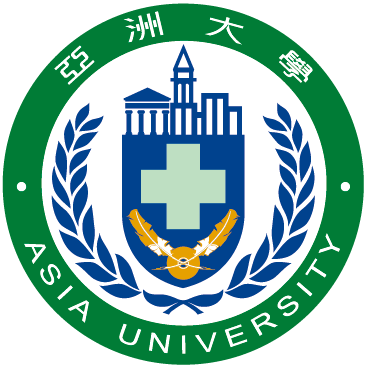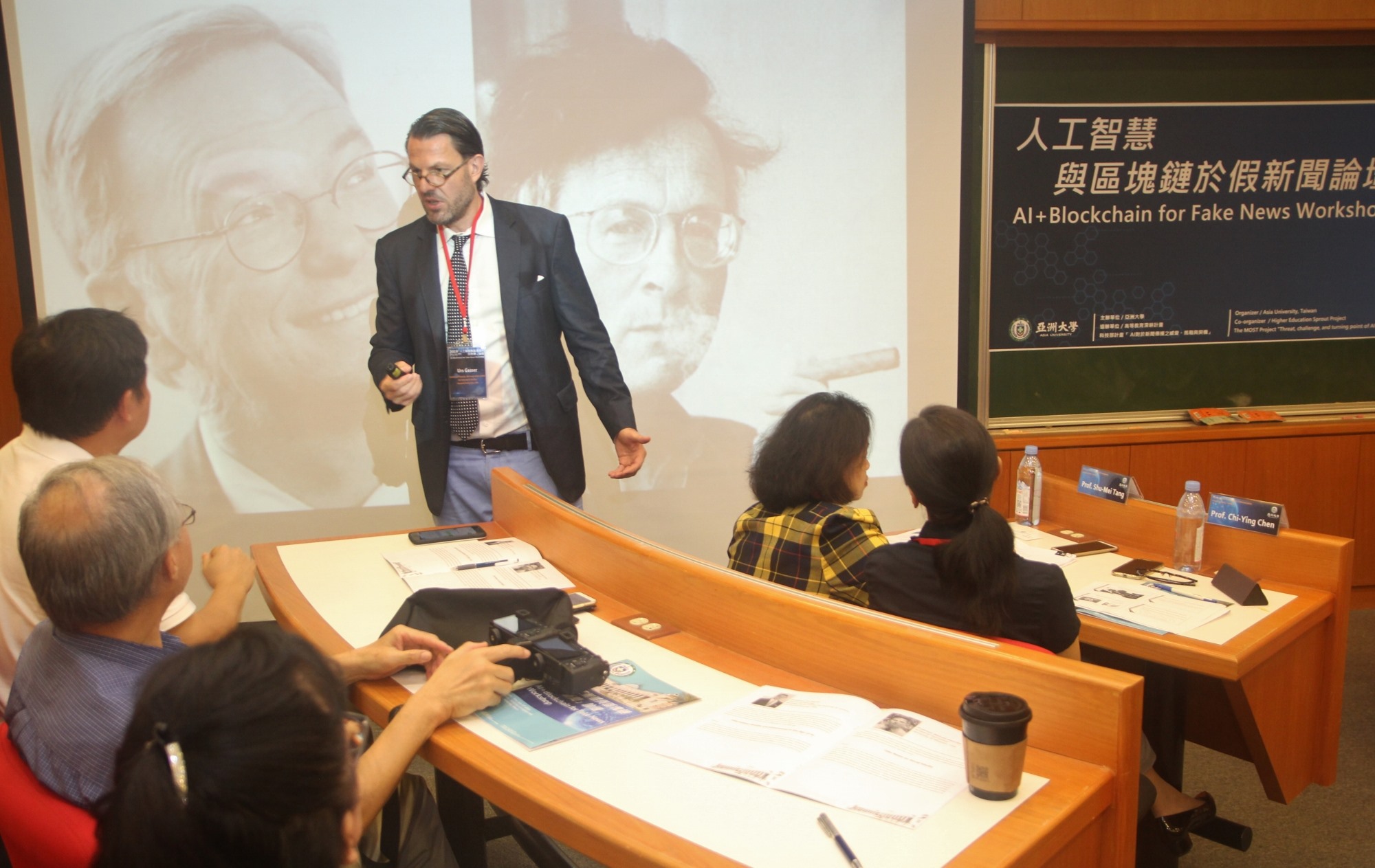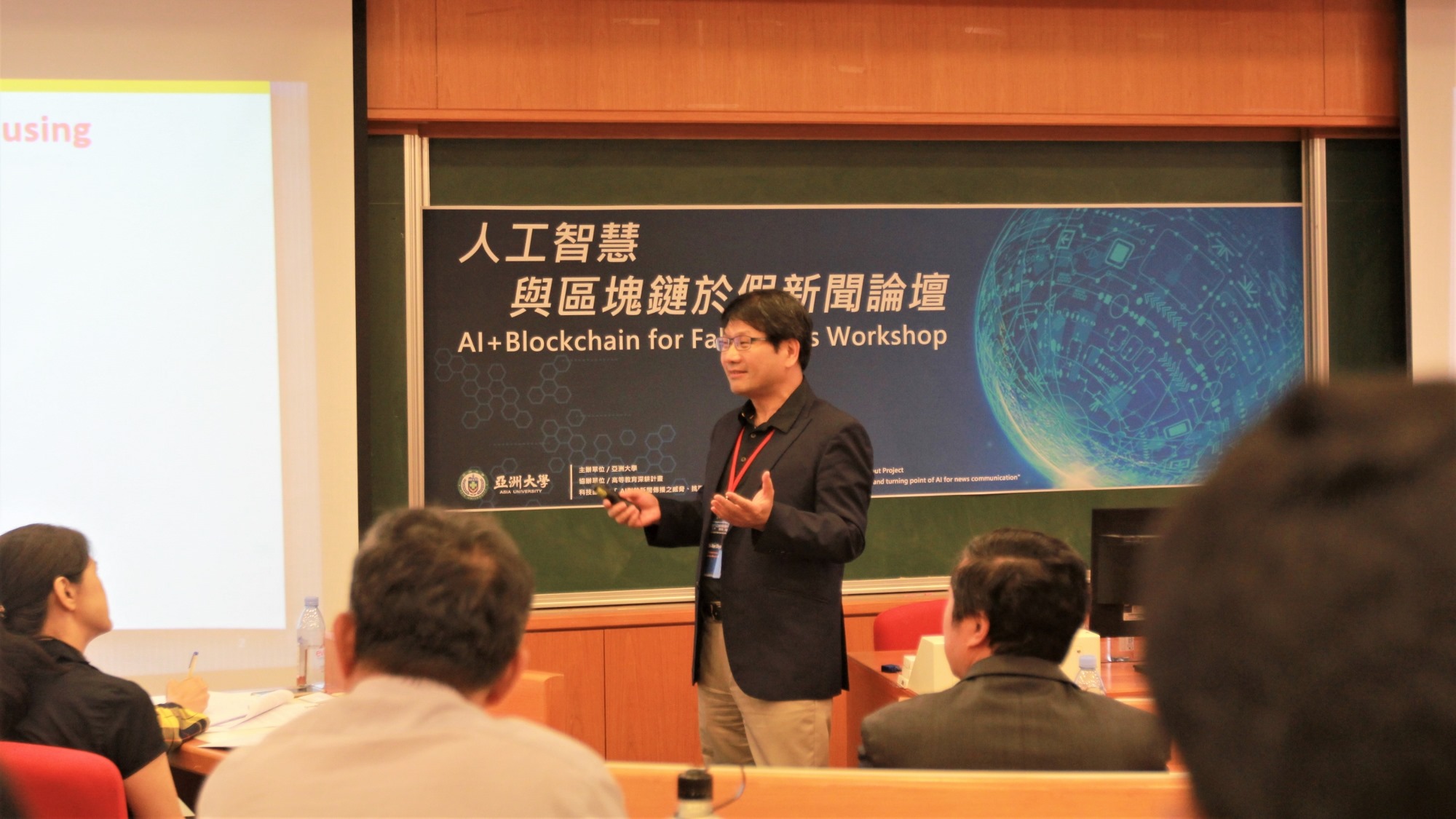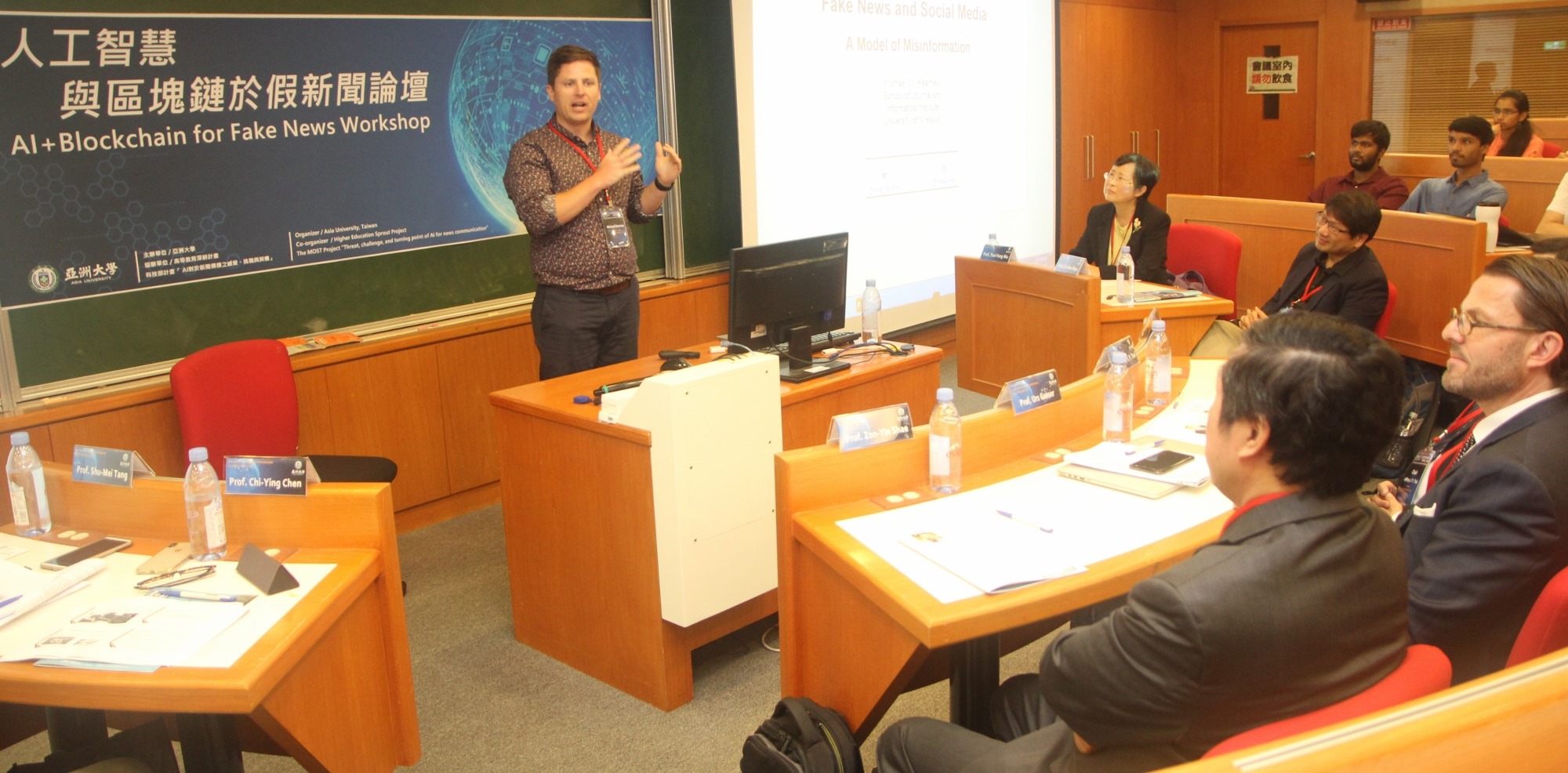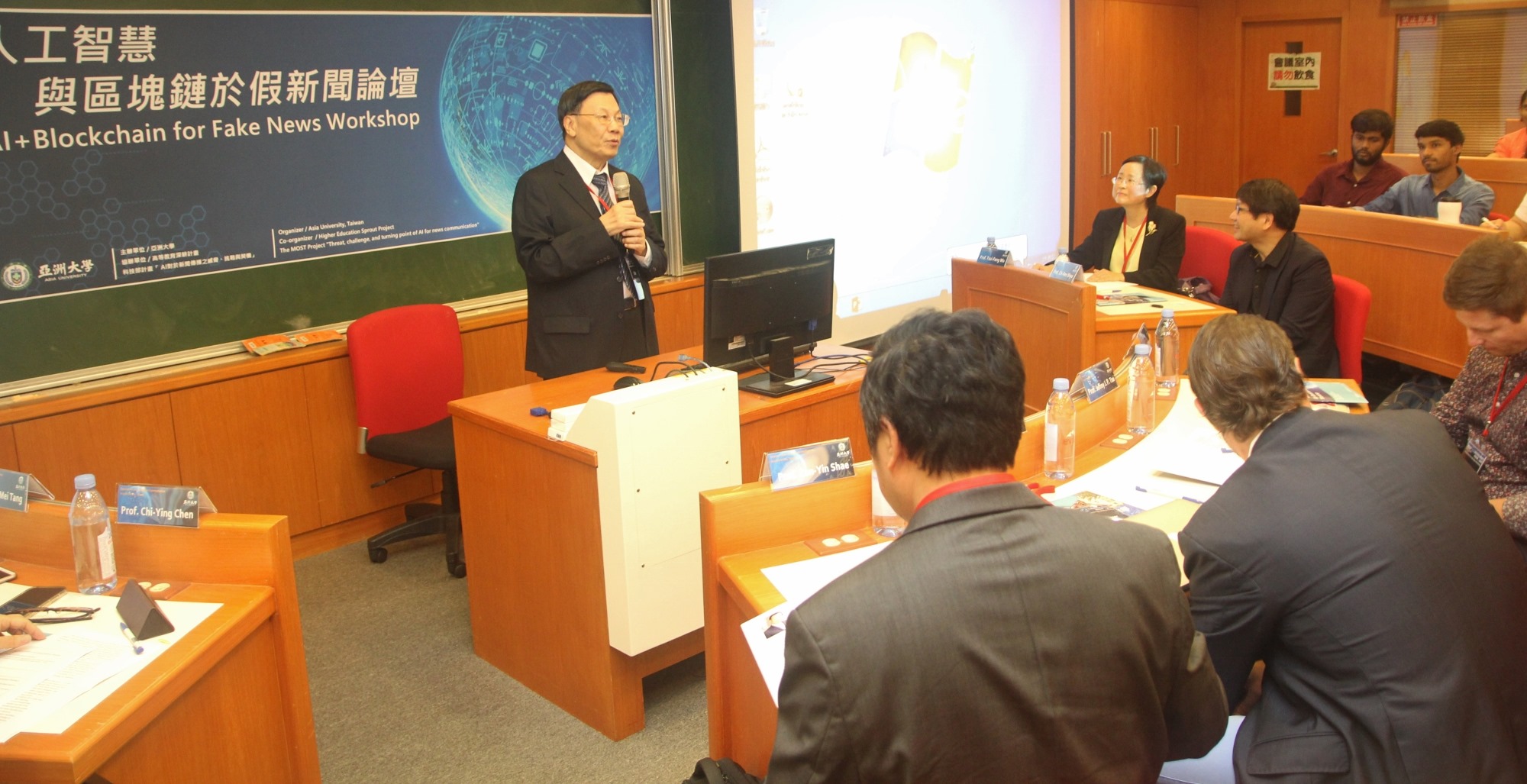 Asia University (AU) President, Jeffrey J. P. Tsai held the 2019 Workshop on “Artificial Intelligence and Blockchains for Fake News” and gave a welcome speech. |
At the opening ceremony, AU President, Jeffrey J. P. Tsai, gave a welcome speech, in which he mentioned that AU is committed to promoting AI programs in education, and AU faculty members and students have developed many AI applications. One of them can be used to detect a person’s facial expression, by which a person in doubt may be monitored and prevented from indulging in internet addiction. Another application can distinguish whether the place of production of a local tea product in Taiwan, the Oriental Beauty Tea, is true or not, by which tea farmers’ sales of their real tea products can be ensured. As to humanistic literacy, aesthetics and cross-disciplinary learning abilities which cannot be replaced by AI, President Tsai said that AU has also strengthened related education and worked hard for the goal of cultivating students with strong background both in humanity and sci-tech.
“Is much information a good thing?” asked Prof. Urs Gasser, the Executive Director of the Berkman Center for the Internet and Society at Harvard University. “In the US, we focused on the importance of freedom of speech; some people think that plenty of information is definitely positive even if the context contains false ingredients, although this concept is quite controversial,” said Prof. Urs. He also mentioned that most news was provided by professional journalists in the past and its quality is easy to check; however, everyone now can spread news from online social media platforms quickly without being verified. In order to manage fake news effectively, a solution to stop the spread of fake news is to combine the uses of legal developments, science and technology assistances, propaganda by education, etc.
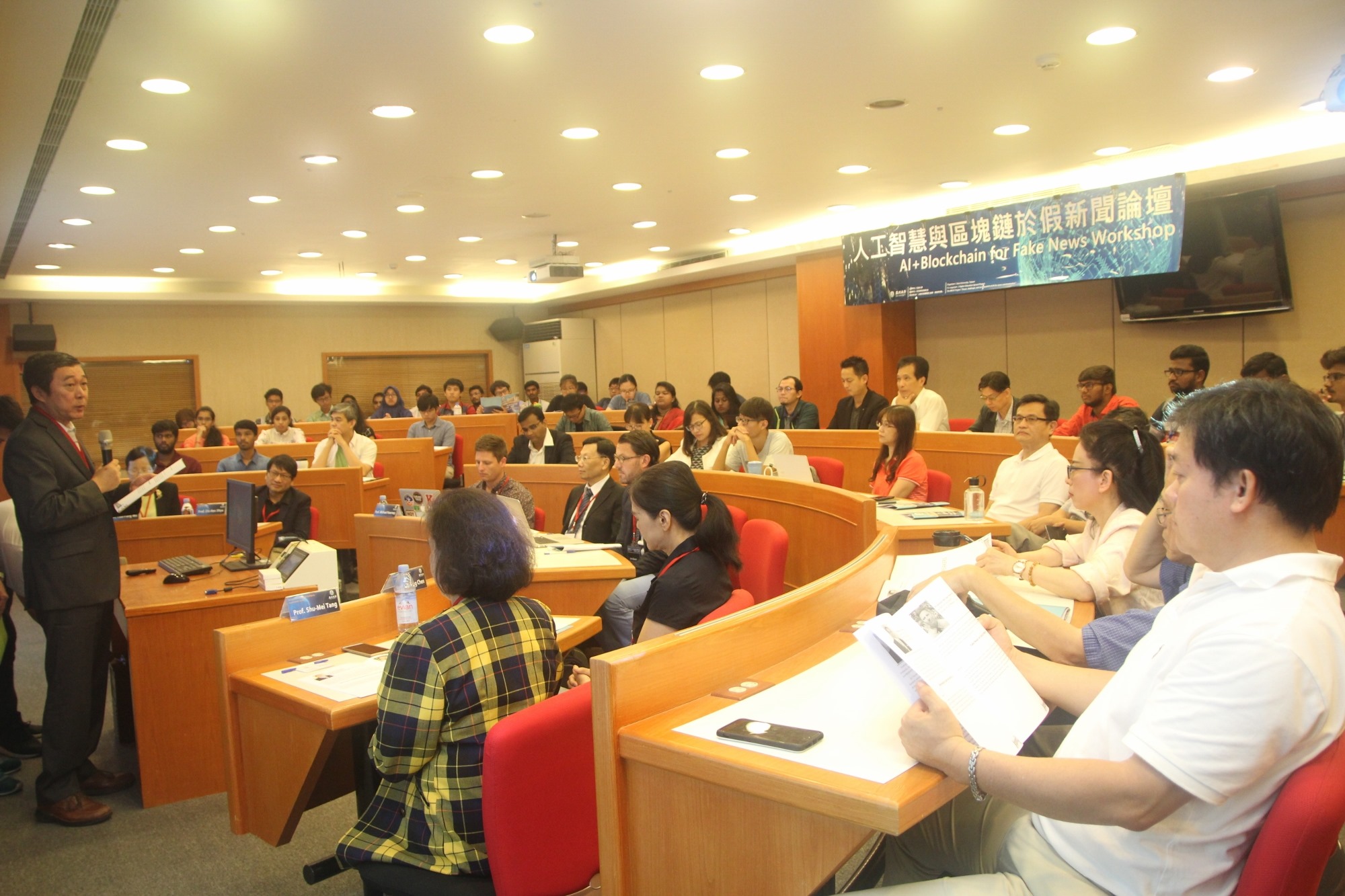 The 2019 Workshop on “Artificial Intelligence and Blockchain for Fake News” was held in AU, and Prof. Zon-Yin Shae was a keynote speaker. |
Another participant of the workshop, Prof. Chi-Ren Shyu comes from the Informatics Institute at the University of Missouri, who has specialty in the fields of blockchains, big data analytics, biomedical informatics, mobile healthcare and e-health, visual knowledge reasoning, and search engine design, and has published more than 140 papers and is responsible for a number of US federally-funded big data AI projects. He pointed out that unreal medical information leads to wrong behaviors and even affects the human life or leads to deaths. He said that he is working on the establishment of a comprehensive knowledge database which combines multiple real-world information sources with artificial intelligence methods, and can be used to identify various levels of fake medical news related to drugs and medical devices. Prof. Zon-Yin Shae, a chair professor of AU, Prof. Chi-Ying Chen, an associate professor of the Department of Information Communication at AU, and Prof. Shu-Mei, Tang, the head of the Department of Financial and Economic Law at AU, are now jointly carrying out a “humanities via AI” project supported by the Ministry of Science and Technology of Taiwan entitled “Artificial Intelligence for the Threats, Challenges and Opportunities of News Communication.” The current results found in this project has also been reported in the forum in this workshop by these three professors.
Prof. Shae, who is also the Director of the Artificial Intelligence Center at AU, pointed out that Internet giants such as Facebook, Google, and Twitter are all devoted currently to developing AI techniques to detect fake news, but the correct rates yielded by their projects are unsatisfactory. So far, fact-checking agencies detect fake information by human resources, and this might be the most accurate way to prove false news at present. However, the manpower is insufficient, and the verification work is a big challenge. To improve the accuracy of information verification, Prof. Shae’s research is to develop a mechanism for assessing the truth of a message by weighting a variety of factors, including information provided by fact check experts, outputs yielded by AI techniques, parameters offered by crowd sourcing, etc. This will help promoting the efficiency of human fact checkers in the effort of detecting fake news.
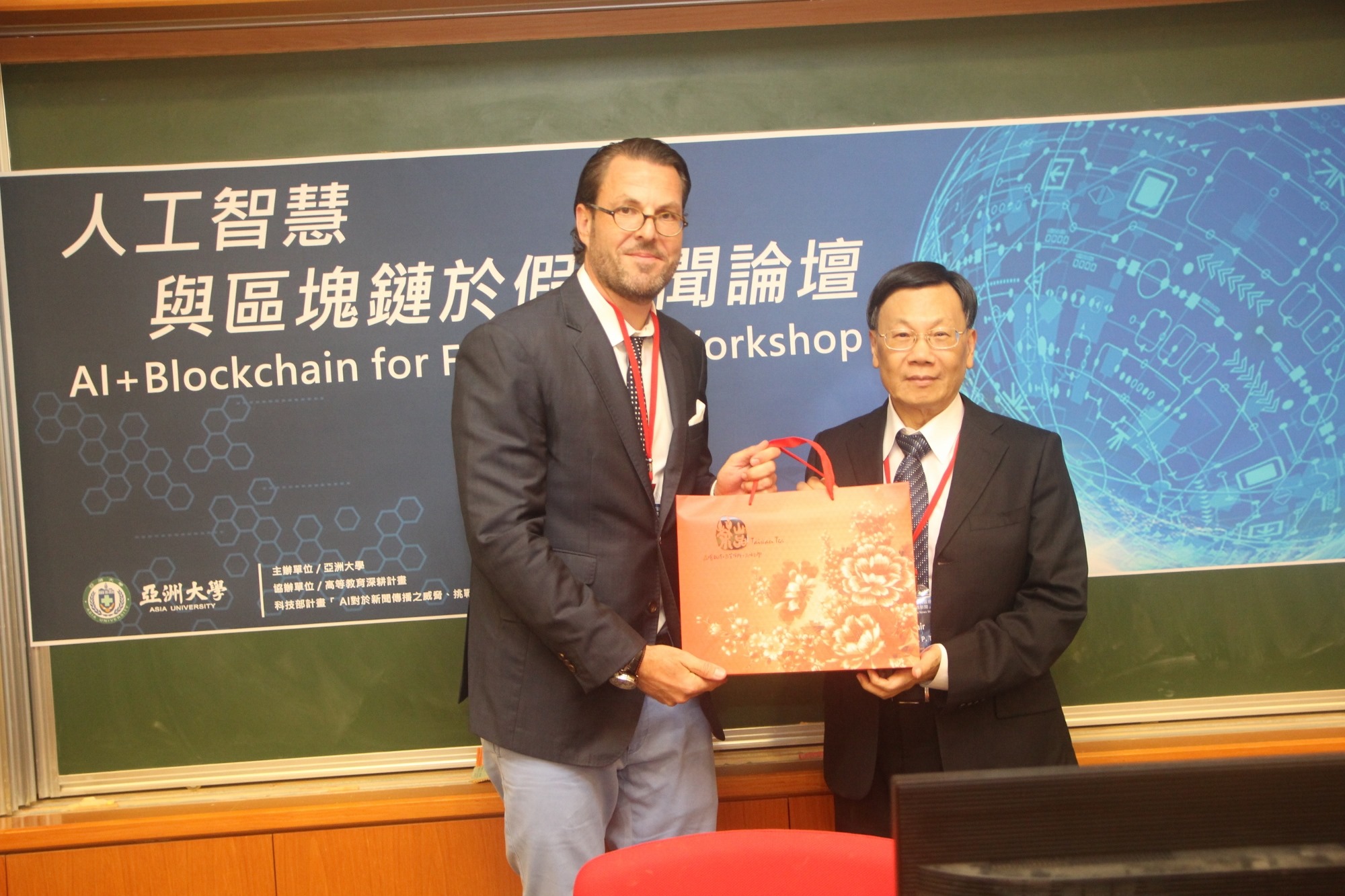 AU President, Jeffrey J. P. Tsai, presented a gift to Prof. Urs Gasse, the Executive Director of the Berkman Center for the Internet and Society at Harvard University. |
One more participant in the workshop, Prof. Shu-Mei Tang, the Head of the Department of Financial and Economic Law at AU, pointed out that while cracking down on fake news, the freedom of speech might be hurt simultaneously; therefore, the aim of her research is to define the meaning of false news and propose plans to combat fake news from social, political and legal aspects. “In the meantime, the freedom of speech should be protected to prevent the human right from being improperly violated,” said Prof. Tang.
In addition, Ms. Cui-Fang Wu, a procurator of the Taichung Branch of the Taiwan High Prosecutors Office, also introduced the current legislative progress on establishing new laws related to fake news in Taiwan. She indicated the importance to educate the public about potential damages that fake news can cause in the forum.
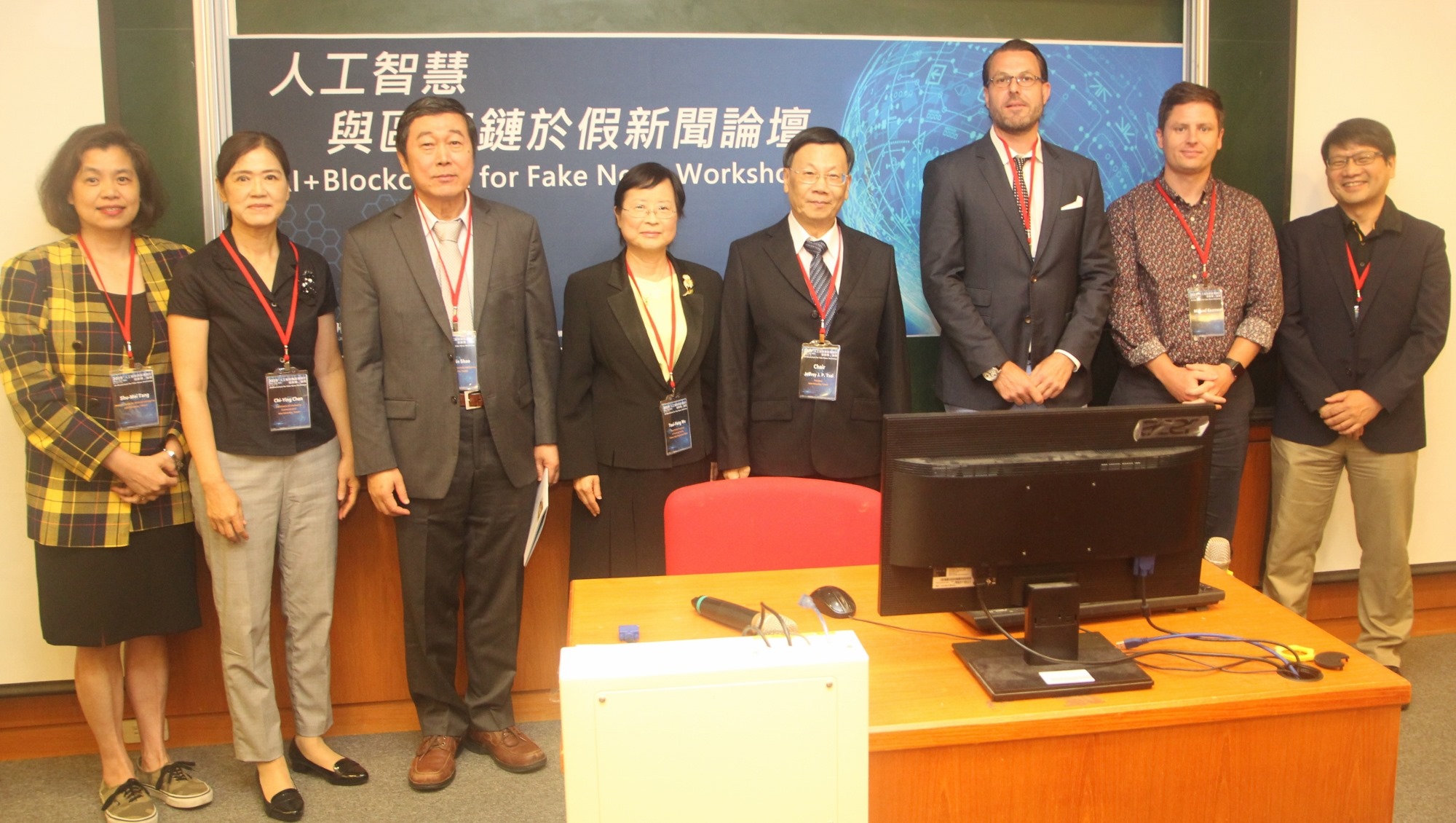 At the end of the 2019 Workshop on “Artificial Intelligence and Blockchains for Fake News,” AU President, Jeffrey J. P. Tsai took a group photo with Prof. Urs Gasser from Harvard University, Prof. Michael Kearney from the University of Missouri, Prof. Chi-Ren Shyu, Prof. Zon-Yin Shae, Prof. Chi-Ying Chen, and Prof. Shu-Mei, Tang from AU.
At the end of the 2019 Workshop on “Artificial Intelligence and Blockchains for Fake News,” AU President, Jeffrey J. P. Tsai took a group photo with Prof. Urs Gasser from Harvard University, Prof. Michael Kearney from the University of Missouri, Prof. Chi-Ren Shyu, Prof. Zon-Yin Shae, Prof. Chi-Ying Chen, and Prof. Shu-Mei, Tang from AU.